Happy New Year! Shanah Tovah!
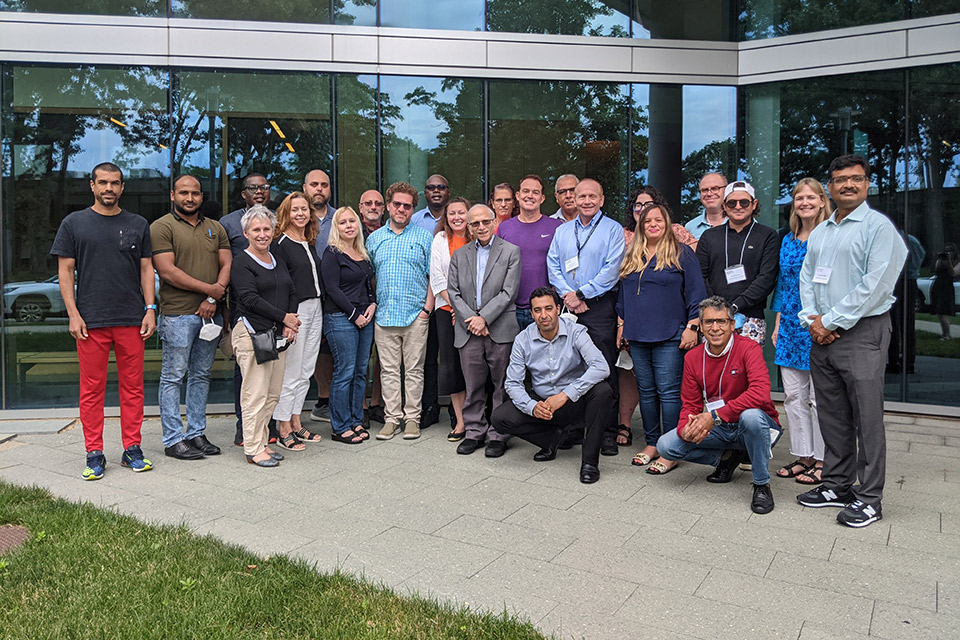
YEAR IN REVIEW 2021-22 (5782)
Happy New Year from the Schusterman Center for Israel Studies! As we bid farewell to the past year, 5782 according to the Jewish calendar, we are proud to share with you an overview of what we have accomplished.This was a momentous year for the Center. We substantially advanced our vision of globalizing Israel Studies, exemplified most strikingly by the Summer Institute for Israel Studies (SIIS). For the first time in the program's 19-year history, participants included faculty from Abraham Accord signatory countries Morocco, Bahrain, and the United Arab Emirates. In another first, this year's cohort was our most international cohort to date, with nearly 50% teaching abroad in India, Nigeria and Turkey, among other countries.
Another thrilling first presented itself when the prestigious Fulbright program, the US government’s flagship international educational and cultural exchange program, engaged us to provide a three-day, pre-departure orientation for participants in their Fulbright-Hays Seminars Abroad program to Israel. This was a huge honor. We broke new ground in other areas, as well, inaugurating the Marash and Ocuin Chair in Ottoman, Mizrahi and Sephardic Jewish Studies at Brandeis University, welcoming our new core faculty member Prof. Yuval Evri to the position. To learn more about these and other highlights from this past year, please use the links below.
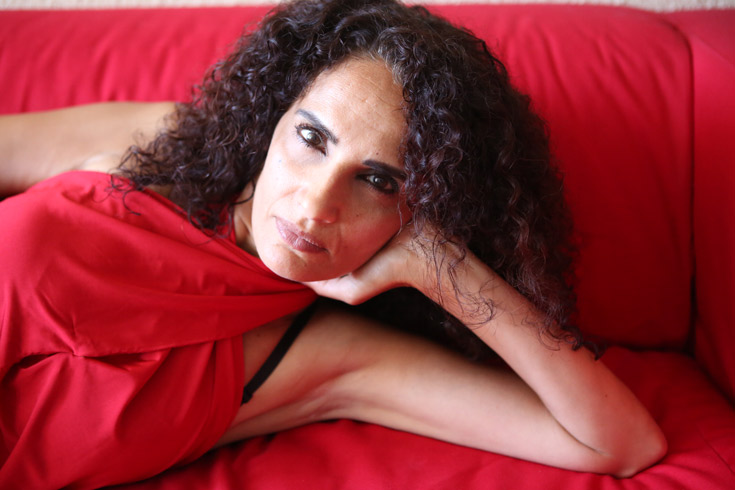
With the continuing pandemic, the majority of our events went virtual, which enabled strong attendance numbers and a broad geographical reach. Over the fall and spring semesters we presented and/or cosponsored 43 events and three art exhibitions. Between synchronous attendance of remote and in-person events, asynchronous viewing of the events’ recordings on our YouTube channel, and art exhibition visitors both online and on-site, we drew an international audience of 13,908.
Our programs spanned a broad spectrum of subjects, from transgender representation in Israeli cinema and television to the role genetics play in identity in the Middle East, from the barely thwarted Nazi military campaign to invade the Middle East to the stories of Henrietta Szold, Judah Magnes, and American Jewry in pre-State Israel.
We co-presented a lecture series on Sephardi thought and modernity, co-organized by our newest faculty member Prof. Yuval Evri, in collaboration with the Belzberg Program in Israel Studies at the University of Calgary. We commissioned and screened a film in commemoration of the 125th anniversary of Theodor Herzl’s "The Jewish State," celebrating David Matlow's Theodor Herzl Memorabilia Collection, the world's largest private collection of Herzl artifacts. Indeed, it is not unusual for our programs to be used in the college classroom, as when SIIS 2012 alumnus Bruce Phillips of Hebrew Union College and University of Southern California, assigned our Herzlmania event to his class studying Zionism.
In February, we presented “Creating New Knowledge: Celebrating Recent Books by Schusterman Center Faculty.” The program was a public conversation between Professor David Katz, director of the History of Ideas Program at Brandeis, and five core Schusterman Center faculty who authored new books in 2020 and 2021: Yuval Evri, Alexander Kaye, Yehudah Mirsky, Ilana Szobel, and me. The program was an opportunity to discuss the scholarship and contributions to the field of Israel Studies of these five faculty members and, by extension, of the Schusterman Center.
Art figured prominently in our programming this year. Along with our partners, Hadassah-Brandeis Institute, Jewish Arts Collaborative, and the Vilna Shul, we brought back our popular Studio Israel conversation series, which focuses on female voices on the contemporary Israeli art scene. We also brought exciting voices in Israeli art to the fore, mounting an online exhibition of Eitan Buganim’s “The Orientalist,” a multichannel video installation exploring perceptions of Mizrahi Jews in Israel. Thrilled by her marvelous work on last year’s “Zionist Phantom,” we once again engaged Dr. Rotem Rozental, executive director at the LA Center for Photography, to serve as curator. We also cosponsored two other exhibitions: “Displaced: Raida Adon's Strangeness” with the Rose Art Museum, which gives form to the artist’s personal experiences of displacement and her search for a sense of home, and “Tamar Nissim: Contagious Truths” with the Hadassah-Brandeis Institute, which explores the experience of women in the Mizrahi immigrant community in Israel in the early decades of statehood.
In November, Dr. Shayna Weiss brought Tomer Katz, the musical producer behind the soundtrack of the latest Israeli mega hit TV series “Dismissed” (Ha’Mefakedet) to speak to her Israeli Popular Culture: Language, Gender, and Politics class. We opened this special session to online audiences and, in person, to the campus community, as a program that we co-sponsored with the Brandeis International Business School. In addition to a fascinating behind-the-scenes look at the process of creating an original soundtrack, Katz gave an overview of the popular music industry in Israel. We took a deep dive into the artistic process and creative challenges in writing music, lyrics, and themes inspired by Israel’s social dilemmas and diverse identities that are expressed in the series, by the characters, and their experiences in the Israeli Defense Forces. The session concluded with a special interactive LIVE show.
Check out our upcoming programs and register to join us!
Pictured: Raida Adon, featured artist in Studio Israel event in October, 2021)

This year’s Institute was groundbreaking and historically significant. In response to a challenge grant from an anonymous donor, we recruited five fellows teaching in Abraham Accord countries: one from Bahrain, three from Morocco, and one from the United Arab Emirates. Their participation was a vitalizing experience for all involved.
Our 2022 cohort was our most international yet. Of the 23 fellows who participated, 11 teach abroad, at institutions in the Czech Republic, India, Mexico, Nigeria and Turkey, in addition to the three Abraham Accord countries noted above. The other 12 participants teach in Massachusetts, Minnesota, Missouri, New York, Oregon, Tennessee, Texas, and Wyoming, including the minority-serving University of Texas at El Paso and City University of New York LaGuardia Community College. The group represented a range of disciplines, including architecture, diaspora studies, global studies, international relations, language and literature, pedagogy, public law, and strategic studies.
Since 2004, we have prepared 372 professors from 262 institutions worldwide to teach Israel Studies in a wide array of disciplines. Alumni have thus far taught 1,520 courses to over 33,774 students throughout the globe, in places like Azerbaijan, Brazil, China, Cyprus, France, Germany, Greece, Hungary, India, Indonesia, Mexico, Romania, Poland, Turkey, the Ukraine and Zimbabwe, among others. And soon, Bahrain, Morocco, and the UAE will join their ranks.
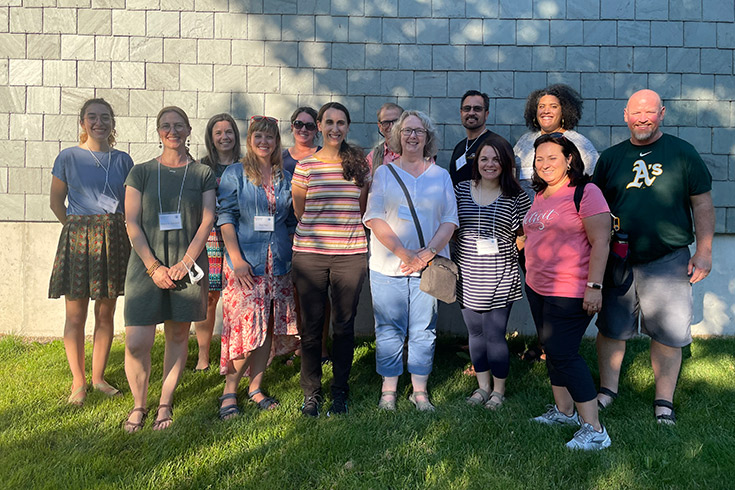
In 2020, Fulbright Israel approached us to host an orientation for their summer seminar program. The Fulbright-Hays Seminars Abroad program provides short-term study and travel seminars abroad for US secondary school educators in the social sciences and humanities, for the purpose of improving their understanding and knowledge of the peoples and cultures of other countries. When participants return, they apply their experiences to teaching methodologies, curriculum enhancement and outreach activities that engage their students, colleagues, civic and professional organizations, and the general public.
Due to the pandemic, the program was postponed until this year when we were finally able, in June, to welcome the 14 program participants to the Schusterman Center. Ranging in age from 29 to 64, they teach in California, Florida, Hawaii, Maine, Michigan, New York, South Carolina, Texas, Utah, and Virginia. We presented a three-day, pre-departure orientation, introducing them in crash-course fashion to Israeli art and culture, Zionism, the Conflict, and more.
It was a tremendous honor to be chosen by the US government for this purpose, one which underscores the Center’s position as the go-to source for Israel knowledge.

One of the contributions of which I am particularly proud is our Online Research Guide to Israel Studies, produced by our Associate Director Dr. Shayna Weiss, in conjunction with our faculty, staff and the Brandeis library. We developed this continually updated compendium of online resources to serve as a tool for scholars and researchers, students and journalists. It is particularly valuable to educators who lack the background, expertise, and access to institutional library collections – from reference materials to archives and databases – available to a college or university professor. Between September 2021 and August 2022, the guide garnered over 5,300 page views, and 16,574 since its launch in May 2020.
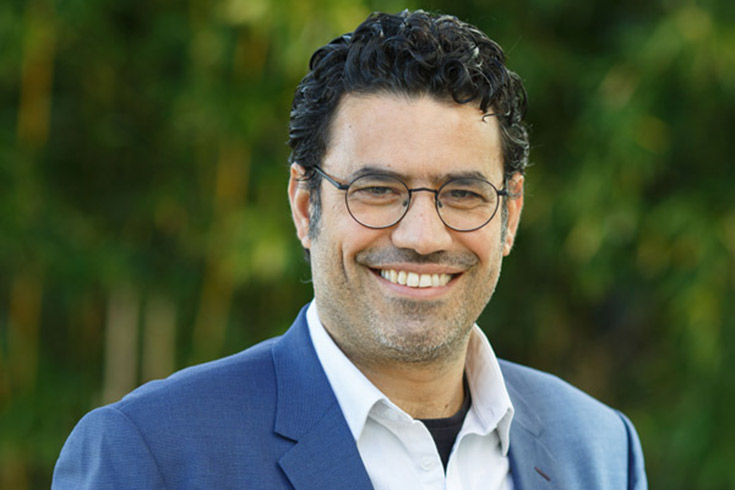
Our Schusterman Center faculty are helping to shape scholarship in the field of Israel Studies. Our newest core faculty member Yuval Evri introduced three new courses, served as an external member of Brandeis’ departmental Curriculum Committee, and joined the Faculty of Color Collective on campus. He also co-organized the five-part Sephardi Thought and Modernity series, interrogating the concept of “modernity” in non-European contexts, such as the Levant and/or the Arab world. Alexander Kaye, was promoted to the rank of associate professor with tenure. His first book, The Invention of Jewish Theocracy: The Struggle for Legal Authority in Modern Israel (Oxford University Press, 2020), won the inaugural Leon Charney Israel Studies Book Award, the American Academy for Jewish Research's Salo Baron Prize for the best first book in Jewish Studies. It was also a finalist for both the Jordan Schnitzer Award in the category of Philosophy and Jewish Thought and for the Concordia University Library - Azrieli Institute Award for Best Book in Israel Studies. The book also earned him the Young Scholar of the Year Award from the Association for Israel Studies in 2021.
Among his many speaking engagements Yehudah Mirsky, lectured on Rav Kook at the Tam Institute for Jewish Studies at Emory University, and on ethnic nationalism, secular theology, and A.D. Gordon at the Judaic Studies Faculty Seminar at Brown University. In January of this year, Haaretz named his Rav Kook: Mabat Hadash one of the 50 best volumes of 2021. The book is the Hebrew edition of his Rav Kook: Mystic in a Time of Revolution (Yale University Press, 2014). He is the new director of the Islamic and Middle Eastern Studies Program. Ilana Szobel was promoted to the rank of professor with tenure and received the Theodore and Jane Norman Award for Faculty Scholarship in the fall. She introduced a groundbreaking new course, Sexual Violence in Film and Culture,which examines the intersections of gender, race, sexuality, class, and disability in the construction of sexual violence. Her Flesh of My Flesh: Sexual Violence in Modern Hebrew Literature (SUNY Press, 2021) was a finalist for the 2021 Best Book in Israel Studies presented by the Azrieli Institute of Israel Studies and Concordia University Library. Our associate director, Dr. Shayna Weiss, taught Israeli Popular Culture: Language, Gender, and Politics. She was quoted in a variety of outlets, including Spanish language publication Israel Económico, Hadassah Magazine, and The Times of Israel. Dr. Weiss was also interviewed on a number of podcasts, including Talking Tachlis, and Identity/Crisis.
Last year we hosted post-doctoral fellow Shula Mola, an Ethiopian-Israeli scholar and activist. Dr. Mola moderated Center programs, shared her research and experiences in speaking engagements, articles (like her essay, “Sigd is not just a holiday for Ethiopian Jews. It’s a declaration that Israel sees us.”), and podcasts (like this Vibe of the Tribe episode). In the spring, Israel’s leading economic newspaper, Globes, named her one of Israel’s 50 most influential women in 2022, in the Society, Education, and Academia. We are delighted to have Dr. Mola with us again this year.
I, meanwhile, spoke at the first of a series of White House virtual briefings to the Jewish community, in celebration of Jewish-American Heritage Month. I was profiled in an article in the August 8th issue of The Jerusalem Report about Jewish collector Irvin Ungar donating his comprehensive Jewish Publication Society collection to the University of Haifa, and was the main speaker at the dedication ceremony. I also chaired and served as commentator at the final session of the 18th World Congress of Jewish Studies at the Hebrew University of Jerusalem, about the Jewish Joint Distribution Committee and American philanthropy to Israel, and was honored at a special session marking the publication of a festschrift (a collection of writings published in tribute to a scholar), New Perspectives in American Jewish History: A Documentary Tribute to Jonathan D. Sarna (Brandeis University Press, 2021).
Pictured: Prof. Yuval Evri
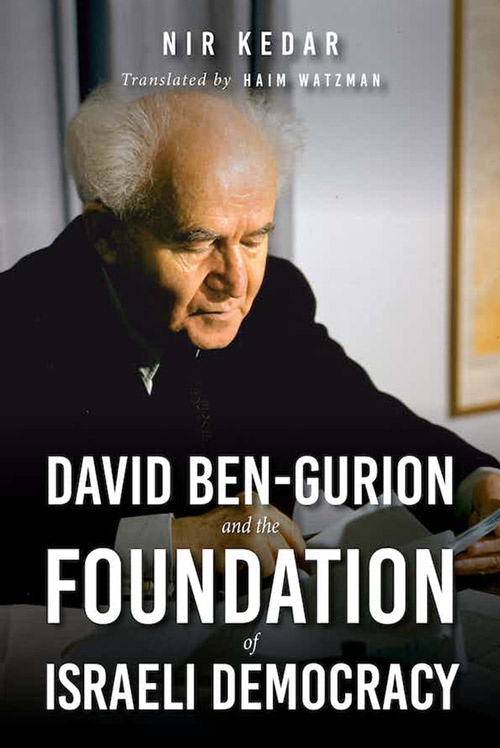 Our Perspectives on Israel Studies book series, through Indiana University Press, published Nir Kedar’s David Ben-Gurion and the Foundation of Israeli Democracy, translated by Haim Watzman, and Land Law and Policy in Israel: A Prism of Identity by Haim Sandberg. Author and Tel Aviv University professor Orit Rozin was awarded the prestigious Zalman Shazar Heiman Prize for her body of work, which noted especially two pathbreaking books by Orit, both part of our Schusterman Series in Israel Studies, published by Brandeis University Press: The Rise of the Individual in 1950s Israel and A Home for All Jews. The award ceremony was hosted at the home of the President of the State of Israel. Our journal Israel Studies continues to rank as a leading journal in this field, with more than 3,200 university subscribers and tens of thousands of downloads annually by individuals in about 100 countries, including those that do not have relations with Israel, such as Iran and Indonesia.
Our Perspectives on Israel Studies book series, through Indiana University Press, published Nir Kedar’s David Ben-Gurion and the Foundation of Israeli Democracy, translated by Haim Watzman, and Land Law and Policy in Israel: A Prism of Identity by Haim Sandberg. Author and Tel Aviv University professor Orit Rozin was awarded the prestigious Zalman Shazar Heiman Prize for her body of work, which noted especially two pathbreaking books by Orit, both part of our Schusterman Series in Israel Studies, published by Brandeis University Press: The Rise of the Individual in 1950s Israel and A Home for All Jews. The award ceremony was hosted at the home of the President of the State of Israel. Our journal Israel Studies continues to rank as a leading journal in this field, with more than 3,200 university subscribers and tens of thousands of downloads annually by individuals in about 100 countries, including those that do not have relations with Israel, such as Iran and Indonesia.
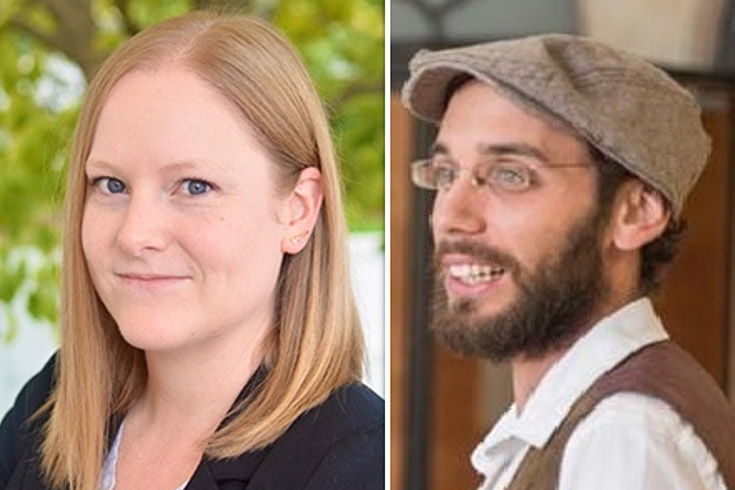
We are proud of the achievements of our doctoral fellows and alumni who represent a broad spectrum of academic thought, geographic regions, religions and ethnicities. In July, we celebrated our two newest graduates, Yair Bar Zuri PhD ‘22 (NEJS), with his dissertation “Embracing Contradiction in the Writings of Aharon David Gordon and Yosef Haim Brenner,” and Karen Spira PhD ’22 (NEJS), with her dissertation “Disadvantaged and Orphaned Jewish Children in Palestine, 1881-1939."
Shirah Malka Cohen (NEJS) published a journal article, had another accepted for publication, and submitted a third. She also co-created and co-organized the First Annual Interdisciplinary Graduate Student Colloquium. Mika Hackner (Politics) concluded her research and drafted the majority of her dissertation. Maya Dworsky-Rocha (Anthropology) submitted her dissertation draft and was an adjunct lecturer in Anthropology at Babson College. Maham Ayaz (NEJS), now officially ABD (all but dissertation), presented her preliminary analysis at the European Association for Israel Studies conference and her first chapter on Land and the Nation at the Schusterman Seminar series. She also designed and taught her first independent Israeli history course, Zionism, Palestine, and Israel in Historical Perspective, at the State University of New York at Albany, to a diverse class of 48 students. Rima Farah (NEJS) received a grant from the Mandel Center for the Humanities’ public humanities, research, and dissertation research grants for 2022-23 to complete her dissertation. Iddo Haklai (NEJS) finished writing his and submitted it to his committee members. I am happy to report that he successfully defended his dissertation "'To Hear the Calling Voice of God' - The Religious Thought of the Religious-Zionist Labor Movement in Mandatory Palestine, 1922-1948" on September 19, becoming our first graduate of the new academic year.
Our alumni are enriching the field of Israel Studies, as well as channeling their scholarship into parallel pursuits in exciting ways. Last December, Rachel Fish, PhD '13 (NEJS), co-founded the nonprofit Boundless, described on its website as "a think-action tank partnering with community leaders across North America to revitalize Israel education and take bold collective action to combat Jew-hatred." Shay Rabineau, PhD '13 (NEJS), was promoted to Associate Professor of Israel Studies at Binghamton University. His book Walking the Land: A History of Israeli Hiking Trails, based on his dissertation is due out in January 2023 as part of our Indiana University Press series, Perspectives on Israel Studies. Amber Taylor, PhD ‘19 (NEJS), spoke in October at "Commemorating the 180th Anniversary of Elder Orson Hyde's Prayer Dedicating Jerusalem," an event cosponsored by the American Jewish Committee (AJC) Westchester/Fairfield and the Church of Jesus Christ of Latter-day Saints (LDS), Westchester Stake. Amber is a writer and historian in the LDS Church History Department. Jason Olson, PhD '16 (NEJS), currently working as a defense policy officer for US Forces Korea, recently released a scholarly memoir, The Burning Book: A Jewish-Mormon Memoir (BCC Press, 2022), in which he and his co-author James Goldberg explore Jewish-Latter-day Saint relations, Zionism, and religious pluralism in America and Israel. Ehud Eiran, PhD '10, (Politics), our very first doctoral student, was appointed to head the University of Haifa’s Politics, Philosophy, and Economics program. And Gangzheng She, PhD '18 (NEJS), was promoted from assistant to associate professor in the Department of International Relations at Tsinghua University in Beijing, where he has been teaching since he graduated.
Pictured: New PhDs Karen Spira '22 and Yair Bar-Zuri '22
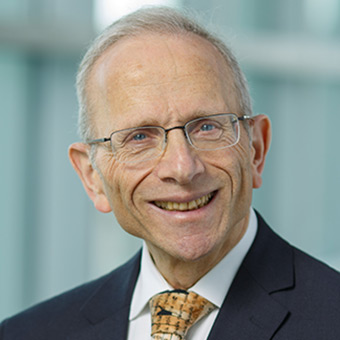
We look forward to an exciting year ahead, a year of transition and new beginnings: at the end of this semester I will conclude my term as director. The University will soon announce the Center's new leader, an esteemed scholar and tenured faculty member who will take the helm in January 2023. It has been gratifying to watch our audience grow and globalize, and I look forward to seeing the new director lead the Center through its next chapter. In the meantime, I invite you to join us for our upcoming events, in person or via Zoom. To support our vital work, make a gift here.
All good wishes for a happy and healthy New Year,
Jonathan D. Sarna
University Professor and Joseph H. & Belle R. Braun Professor of American Jewish History
Director, Schusterman Center for Israel Studies